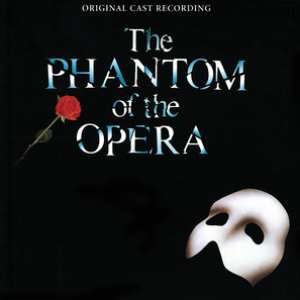overture
Original London Cast Lyrics
Jump to: Overall Meaning ↴ Line by Line Meaning ↴
This trophy from our saviours, from our saviours!
From the enslaving force of Rome!
GIRL'S CHORUS:
With feasting and dancing and song, tonight in celebration, we greet
MEN'S CHORUS:
The trumpets of Carthage resound! Hear, Romans, now and tremble! Hark
to our step on the ground!
ALL:
Hear the drums -- Hannibal comes!
PIANGI:
Sad to return to find the land
we love threatened once more by Roma's far-reaching grasp,
REYER:
Signor . . . if you please: "Rome".
We say "Rome' not "Roma"
PIANGI:
Si, si, Rome, not Roma. Is very hard for me.
LEFEVRE:
This way, gentlemen, this way.
Rehearsals, as you see, are under way, for a new production of
Chalumeau's "Hannibal".
Ladies and gentlemen, some of you may already, perhaps, have met M.
Andre and M. Firmin ...
REYER:
I'm sorry, M. Lefevre, we are rehearsing.
If you wouldn't mind waiting a moment?
LEFEVRE:
My apologies, M. Reyer. Proceed, proceed ...
REYER:
Thank you, monsieur.
"Sad to return..." Signor ...
LEFEVRE:
M. Reyer, our chief repetiteur. Rather a tyrant, I'm afraid.
PIANGI:
Sad to return to find the land we love
threatened once more by Rome's far-reaching grasp.
Tomorrow, we shall break the chains of Rome.
Tonight, rejoice - your army has come home.
By Nehemoth
The Overture of the musical Phantom of the Opera introduces the audience to the story's setting, Paris Opera House in the late 1800s. The Overture starts with the orchestra's tune, followed by the women's chorus, then the men's, and finally, the individual voice of Piangi. The first line of the lyrics is sung by Carlotta, who is the leading soprano of the opera house. She holds a trophy that represents freedom earned by defeating the force that previously enslaved them, which we come to learn is Rome. The girl's chorus follows, and their lines represent a celebration welcoming the return of soldiers who have emerged victorious and can now bring salvation. The men's chorus then takes over, and their song is more aggressive, signifying a confrontation with Rome, and their trumpet signals a warning to the Roman army. The song concludes with Piangi singing about his love for the land, which is threatened by Rome's greed.
The Overture establishes several themes that the musical portrays, such as love, power, freedom, and control, through its various symbols and metaphors. The song's lyrics reference historical elements such as Hannibal's invasion of Italy during the Second Punic war and the rise of Rome as the dominant power in Europe. The song's lyrics also introduce us to characters in the musical like Carlotta, who has a significant ego and is always seeking the spotlight, and Piangi, who is dedicated to his art and is happiest when he is on stage. Through the opening number, the audience grasps the plot's essence, and the scene is set for the story to unfold.
Line by Line Meaning
This trophy from our saviours, from our saviours! From the enslaving force of Rome!
We have won a victory against the oppressive rule of Rome and this trophy represents our salvation.
With feasting and dancing and song, tonight in celebration, we greet the victorious throng, returned to bring salvation!
We celebrate with music and merriment as the triumphant military returns, bringing salvation to our people.
The trumpets of Carthage resound! Hear, Romans, now and tremble! Hark to our step on the ground!
The triumphant march of Carthage is heralded by the sound of trumpets, causing fear and trembling among the Romans at the mere sound of our footsteps.
Hear the drums -- Hannibal comes!
The stirring beat of the drums announce the arrival of the great Hannibal.
Sad to return to find the land we love threatened once more by Roma's far-reaching grasp,
It is disheartening to come back to our beloved land only to find that the far-reaching grasp of Rome has once again threatened it.
Signor . . . if you please: "Rome". We say "Rome' not "Roma"
Please use the correct pronunciation when referring to Rome as we say "Rome", not "Roma".
Si, si, Rome, not Roma. Is very hard for me.
Yes, yes, Rome, not Roma. It is difficult for me to remember the correct pronunciation.
This way, gentlemen, this way. Rehearsals, as you see, are under way, for a new production of Chalumeau's "Hannibal". Ladies and gentlemen, some of you may already, perhaps, have met M. Andre and M. Firmin ...
Please follow me, gentlemen. As you can see, rehearsals for a new production of Chalumeau's "Hannibal" are in progress. Some of you may have already met M. Andre and M. Firmin.
I'm sorry, M. Lefevre, we are rehearsing. If you wouldn't mind waiting a moment?
I apologize, M. Lefevre, but we are currently in the middle of rehearsal. Could you please wait a little while?
M. Reyer, our chief repetiteur. Rather a tyrant, I'm afraid.
Allow me to introduce M. Reyer, our chief repetiteur, who unfortunately has a reputation for being a bit of a tyrant.
Tomorrow, we shall break the chains of Rome. Tonight, rejoice - your army has come home.
Tomorrow, we will fight against the oppressive chains of Rome. But tonight, let us rejoice as the army has returned home victorious.
Lyrics © Kobalt Music Publishing Ltd.
Written by: ALAN JAY LERNER, FREDERICK LOEWE
Lyrics Licensed & Provided by LyricFind
